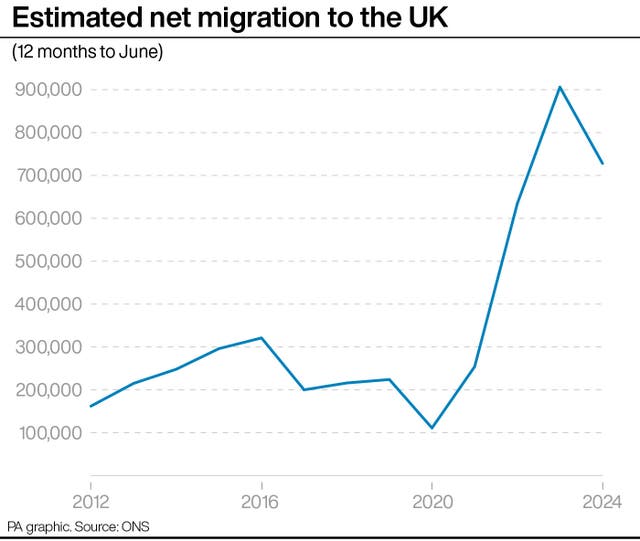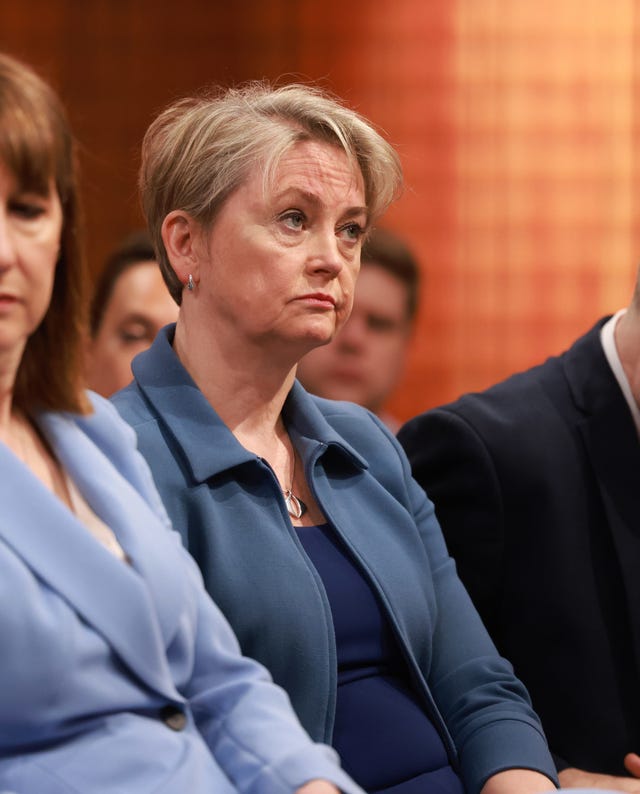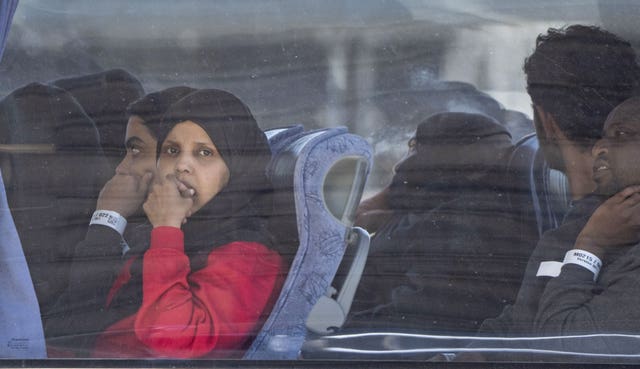Starmer lays out immigration controls after ‘incalculable damage’ to society
Prime Minister Sir Keir Starmer said without fair rules and shared values, ‘we risk becoming an island of strangers’.

Sir Keir Starmer said high net migration figures had caused “incalculable” damage to British society as he set out a series of measures aimed at reducing the number of people coming to the UK.
The Prime Minister, who said the country risks becoming an “island of strangers” without better integration, said he wanted net migration to have fallen “significantly” by the next general election – but refused to set a target number.
The plan, which includes changes to the way human rights laws are applied, is aimed at making the immigration system “controlled, selective and fair”, Sir Keir said.
The Government’s promise to “take back control of our borders” comes as Labour battles a surge in support for Reform UK, which won the Runcorn and Helsby by-election and council seats across England with policies including a “freeze” on immigration.
Net migration – the number of people arriving in the UK minus those leaving – stood at 728,000 in the year to mid-2024, down from the peak of 906,000 the previous year.
In a White Paper setting out the proposals, Sir Keir hit out at the Conservatives for running a “one-nation experiment in open borders” because “the damage it has done to our country is incalculable”.
That included pressure on housing, public services and the economy, where there were perverse incentives to hire foreign workers.

He addressed the nation in a Downing Street press conference, insisting the plan was not motivated by a desire to take on Reform and the Tories but “because it is right, because it is fair and because it is what I believe in”.
He said “fair rules” shaped a country’s values and people’s rights, responsibilities and obligations, adding: “In a diverse nation like ours – and I celebrate that – these rules become even more important.
“Without them, we risk becoming an island of strangers, not a nation that walks forward together.”
The White Paper is aimed at reducing numbers, clamping down on abuses of the system and ending a reliance on cheap foreign labour.
Sir Keir dismissed concerns that reducing immigration would hit the economy, saying the theory that higher numbers produced growth had been tested in the last four years, with “stagnant growth” despite the levels of net migration.
Measures in the highly-trailed White Paper include:
– Migrants will need to wait 10 years rather than five to apply for settlement or citizenship, although workers who significantly contribute to society, such as nurses, doctors and engineers, could be fast-tracked.
– A higher standard of English will be required across all immigration routes, including, for the first time, adult dependents required to display a basic understanding of the language.
– Stricter tests for colleges and universities offering places to foreign students and a reduction in the time graduates can remain in the UK after their studies from two years to 18 months.
The Prime Minister insisted the UK would not need to pull out of the European Convention on Human Rights (ECHR) to continue the crackdown on immigration.

He argued that remaining signed up to international agreements helped underpin deals struck with countries around the world in relation to migration.
But he said “the right balance” needed to be made between individual rights and “the national interest”.
“There’s a balance set out in legislation already, that needs to be adjusted in my view,” Sir Keir said.
The ECHR and its Article 8 right to family life have been notably used by foreign criminals to avoid deportation.
The White Paper promised legislation to “strengthen the public interest test to make it clear that Parliament needs to be able to control our country’s borders and take back control over who comes to, and stays in the UK”.
The measures set out on Monday are aimed at curbing legal migration, but the Government also faces a significant challenge in tackling small boat crossings.
Overnight, a migrant died off the French coast near Boulogne attempting to make the journey, while others were photographed after arriving in the UK on Monday.
Home Secretary Yvette Cooper said: “Later this summer, we will set out further reforms to the asylum system and to border security in response to irregular and illegal migration.”
Political opponents dismissed Sir Keir’s plans, with Reform leader Nigel Farage highlighting the continued migrant crossings.
“This government will not do what it takes to control our borders,” he said.
“Only Reform UK will leave the ECHR and deport illegal migrants.”

The Tories are pushing for a binding annual cap on immigration and Conservative leader Kemi Badenoch said: “Labour doesn’t believe in secure borders. You can’t trust them to protect ours.”
Confederation of British Industry chief executive Rain Newton-Smith said “immigration policy is preventing businesses from accessing critical skills to deliver investment, putting at risk growth and jobs in the rest of their workforce” and also hit out at “changes that risk making the UK a less attractive place to study”.
The promised end to overseas recruitment of care workers also caused alarm in the health sector.
NHS Employers chief executive Danny Mortimer said: “Social care and health leaders will be concerned about the risk that these proposed changes to immigration rules pose to vital social care provision.”





